Acne treatment (ages 8-10)
Good Skin Knowledge lesson plan
Time: 35 min
Objective
Students will be able to:
Learn at least two ways to treat acne
Provide at least one characteristic important to have when dealing with acne
Discuss acne treatment and what it may mean to them
Materials
Assessment
During Introduction to New Material, check for understanding by asking for questions/clarifications.
During Guided Practice, discuss acne advice with students and assess their responses to check for comprehension.
During Closing, ask review questions to check if students have grasped basic concepts from the class.
Opening
3 minutes
Ask the students if they know what acne is. If students do not know, tell them it’s the official name for “pimples.”
Explain that now and moving on into the next few years, their bodies are going to start changing. During this time, a lot of people are challenged by acne. It’s very normal and common.
Ask students if they know how to help prevent pimples. If students are unresponsive, ask students if they know anything about pimples or move on to Step 4.
Tell students that they are going to talk about how to treat pimples.
Introduction to new material
10-15 minutes
Materials: Acne Treatment (enough for class)
Pass out Acne Treatment half-sheet handout to students.
Ask for student volunteers to read through each part. Expand after each point on handout.
Treatment you can apply to your skin.
These are things that you can put on your skin like creams or even a special face wash or body wash with special medicine in it to help (sometimes we get pimples not only on our face but on our body too.)
Treatment that works in your body.
These are usually medicines your skin doctor, or dermatologist, prescribe you. (Make sure students understand the word “prescribe.” This is usually if you have a lot of acne.)
Procedures your dermatologist does at his/her office.
Sometimes the dermatologist will do special procedures on your skin in his/her office if you have really severe acne. Only your dermatologist can do this.
Patience.
It takes about 4-8 weeks for home treatment to take effect. If it doesn’t work after 10 weeks, then you should talk to your parents and/or doctor about changing products.
Don’t pick!
It’s tempting because it feels like pimples just stare at you in the face, but don’t pick or pop them! It can leave scars and make the infection even worse.
Talk to your parents or guardian.
It’s really important to talk to a trusted adult about acne treatment so they can help you decide what is safe for you. They may even decide you need to see a dermatologist.
Talk to your dermatologist.
A dermatologist is an expert on skin and can let you know what the best treatment is for you. They can give you more specific and professional advice and, if needed, prescribe you the appropriate medicine.
Treatment and prevention are friends.
Even if you clear up all your pimples, it’s important to keep treating and taking care of your skin so those stubborn pimples don’t come back again.
Ask for questions and make clarifications.
Guided practice
10-15 minutes
Materials: Acne Advice from Real People (one copy only for teacher)
Read quotes 3, 5, and 7. After each quote, ask students the following questions:
Quote 3: Do you think this is true? What do you think “open-minded” means?
Quote 5: What do you think the author means by “you are much more than your skin”? How could acne define you?
Quote 7: Do you think this is true? Do you think this is important?
Closing
2-3 minutes
Ask quick review questions:
What is acne?
What is a dermatologist?
What are the three types of acne treatments?
Can you name some characteristics important to have when you are dealing with acne.
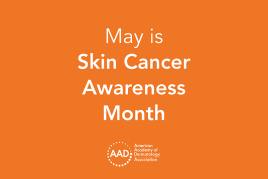 Think sun protection during Skin Cancer Awareness Month
Think sun protection during Skin Cancer Awareness Month
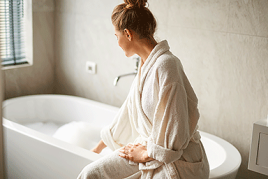 How to care for your skin if you have lupus
How to care for your skin if you have lupus
 Practice Safe Sun
Practice Safe Sun
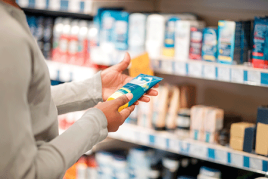 Sunscreen FAQs
Sunscreen FAQs
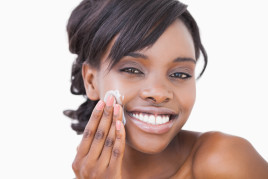 Fade dark spots
Fade dark spots
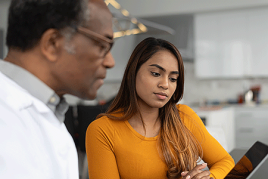 Hidradenitis suppurativa
Hidradenitis suppurativa
 Laser hair removal
Laser hair removal
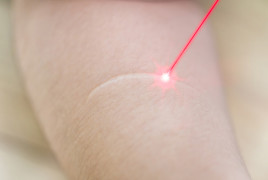 Scar treatment
Scar treatment
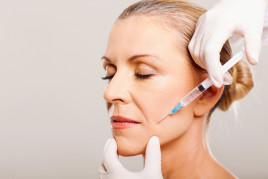 Botox
Botox
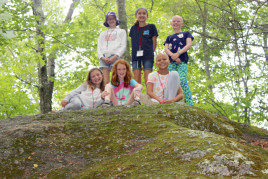 Kids' camp - Camp Discovery
Kids' camp - Camp Discovery
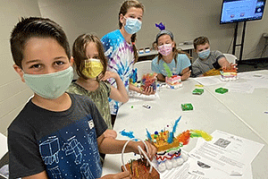 Dermatologist-approved lesson plans, activities you can use
Dermatologist-approved lesson plans, activities you can use
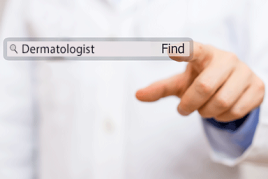 Find a Dermatologist
Find a Dermatologist
 Why choose a board-certified dermatologist?
Why choose a board-certified dermatologist?